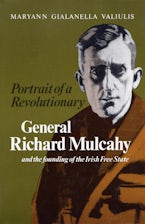In a 1984 lecture on poetry and political violence, Seamus Heaney remarked that "the idea of poetry was itself that higher ideal to which the poets had unconsciously turned in order to survive the demeaning conditions." Jonathan Hufstader examines the work of Heaney and his contemporaries to discover how poems, combining conscious technique with unconscious impulse, work as aesthetic forms and as strategies for emotional survival.
In his powerful study, Hufstader shows how a number of contemporary Northern Irish poets, including Seamus Heaney, Derek Mahon, Michael Longley, Paul Muldoon, Tom Paulin, Ciarán Carson and Medbh McGuckian, explore the resources of language and poetic form in their various responses to cultural conflict and political violence. Focusing on both style and social contexts, Hufstader explores the tension between solidarity and art, between the poet's need to belong and to rebel. He believes that an understanding of the power of lyric points towards an understanding of the source of social violence, and of its cessation.





